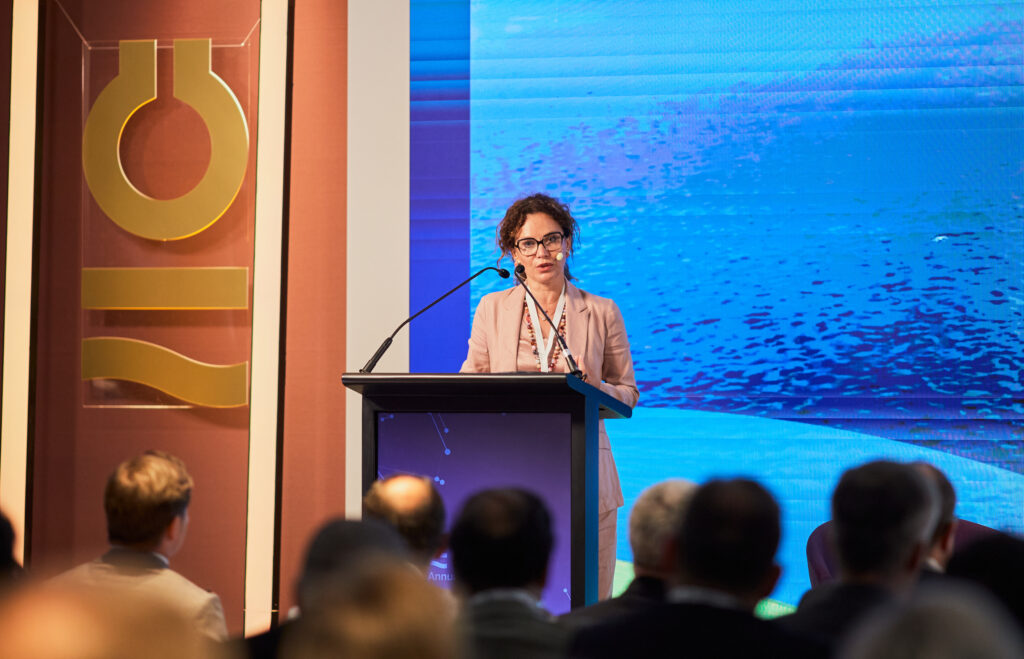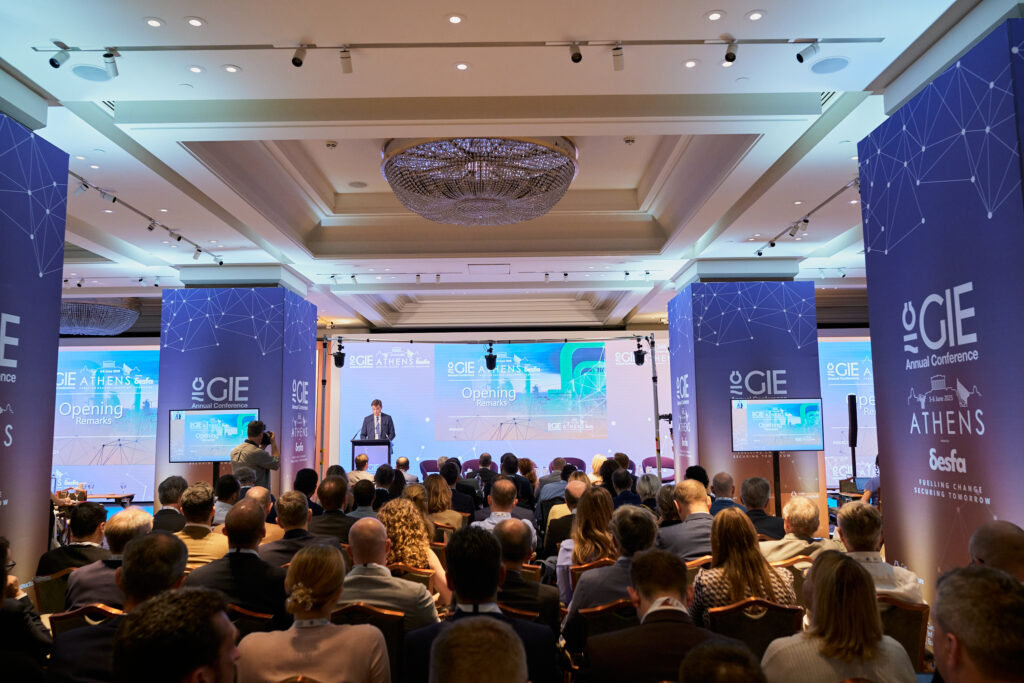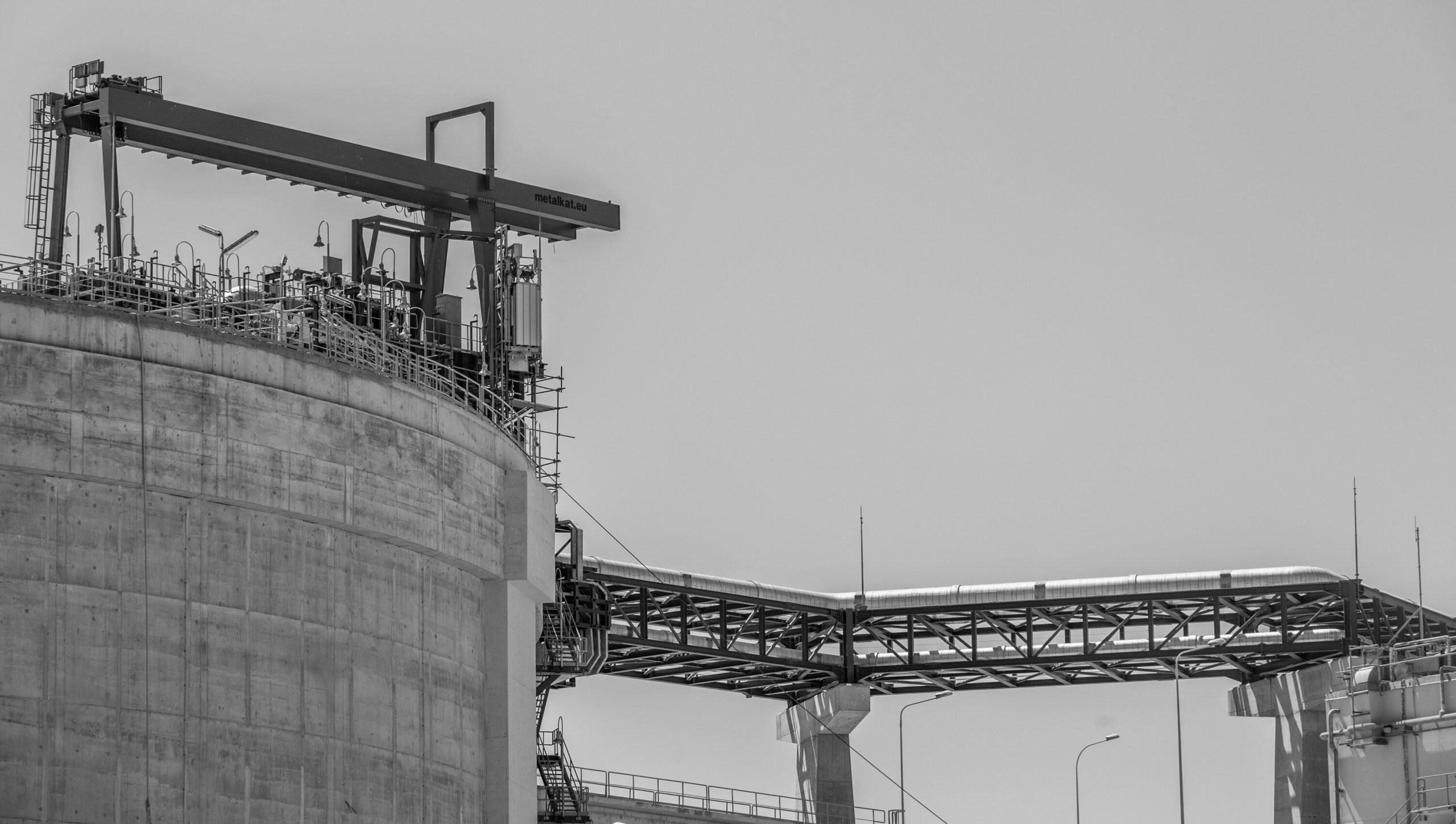Athens, 16 June 2025. The 22nd Annual Conference of Gas Infrastructure Europe (GIE) completed its works successfully in Athens, following two days of high-level dialogue, industry insights, and cross-sector collaboration. Hosted by DESFA, this year’s event brought together more than 300 participants from European institutions, national governments, energy companies, and infrastructure operators.
Under the theme “Fueling Change, Securing Tomorrow,” the conference highlighted the critical role of security of supply in energy at a time of rapid change and geopolitical uncertainty, along with the role of the gas infrastructure in enabling a just and efficient energy transition. From debates on market design and investment frameworks to updates on hydrogen, carbon capture and storage (CCS), and cybersecurity, the conference captured a shared sense of urgency — and opportunity — in aligning infrastructure with Europe’s climate and security goals.
In her opening address, Maria Rita Galli, CEO of DESFA, underscored the critical importance of infrastructure in maintaining resilience and flexibility of the energy system, as renewables continue to scale. “It is not just about ambition, but about reliability. Gas infrastructure ensures we have reliable energy when the wind doesn’t blow and the sun doesn’t shine,” she noted, stressing that Europe’s transition must balance innovation with affordability, and long-term vision with technical realism.

The conference agenda featured high-level keynotes from Greece’s Deputy Minister of Energy, Nikos Tsafos, and Romania’s Secretary of State Cristian-Silviu Bușoi, both of whom emphasized the growing role of the region of Southeastern Europe in the EU’s energy security strategy.
One of the key discussions focused on the energy security and strategic outlook for Southeast Europe and the Baltics, with DESFA’s CEO, Maria Rita Galli joining GIE President Arno Büx, Bulgartransgaz CEO Vladimir Malinov, and high-level executives from KN Energies and Conexus Baltic Grid. The dialogue centered on cross-border interconnections, diversification of supply routes, and how infrastructure can reinforce resilience across the region.
The conference also explored in dedicated sessions the new green fuels of Europe’s future energy system. Experts addressed the realities of scaling low-carbon hydrogen, commercializing carbon capture and storage (CCS) and designing bankable projects.
Michalis Thomadakis, DESFA’s Chief Strategy and Development Officer, presented the company’s vision for positioning Greece as a future hydrogen exporter.
“Greece can become a key green hydrogen exporter to Europe with competitive pricing and resilient infrastructure,” Thomadakis said. He called for swift transposition of the new gas legislation and the establishment of National Hydrogen Network Operators. He further emphasized the need to connect hydrogen producers and consumers across borders and leverage dedicated renewables for competitive, low-carbon hydrogen.
Kleopatra Avraam, DESFA’s Senior Director of Strategic Planning, presented ApolloCO₂, DESFA’s flagship CCS initiative. Through the development of a dedicated CO₂ transport network, the project aims to utilizes DESFA’s existing LNG infrastructure at Revithoussa to enable liquefaction and maritime transport of CO₂ to offshore storage.
“ApolloCO₂ lays the groundwork for Greece’s green transition through coordination, innovation, and strong strategic planning,” she noted, underlining that the project has already been recognized as a Project of Common Interest (PCI) by the EU.
Another session addressed the growing momentum for biomethane and renewable gases in the context of the Green Deal and Fit-for-55 objectives and innovation to enhance EU industrial competitiveness., “DESFA’s existing infrastructure is ready to integrate biomethane with minimal upgrades, accelerating decarbonization efficiently and cost-effectively”, stressed Nikolaos Katsis, DESFA’s Asset Management Chief Officer, while analysing the new proposed legislation in Greece.
The conference also addressed the issues of cybersecurity and resilience in the energy sector, the future of LNG terminals and the strategic role of ports in the energy transition, as well as female leadership in the energy field.
Arno Büx, President of GIE, underlined in his closing remarks that “you cannot build the future if not securing today”, emphasizing the need for stronger cooperation with the European Commission.
With initiatives like ApolloCO₂, H2DRIA, and regional interconnections well underway, DESFA affirmed its commitment to powering a secure, competitive, and more clean future—for Greece, and for Europe.








